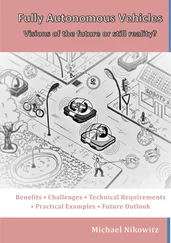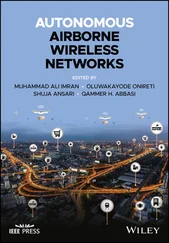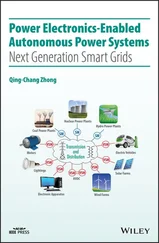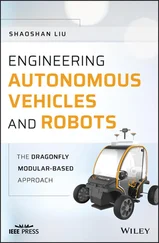Med crossed her arms. “I’m autonomous. No one can track me unless I allow it.”
Jack weighed her options. Just from their brief conversation, she could tell Med was an excellent engineer. It seemed wildly unlikely that Zaxy would have sent this particular bot to assassinate her. Med had a hard-to-fake blob of half-finished molecular simulation data and a hypothesis about an addiction therapy that worked by selectively erasing memories in the brain. More to the point, Med could have killed her already if that was her plan.
Somehow, Threezed had found the perfect researcher to work with Jack on a therapy. Jack caught him glancing at her, looking for a reaction.
“Med, you are welcome to join us. Let’s get in the truck.”
Jack liked watching the smile break over Threezed’s face.
* * *
Night was becoming a more meaningful category as the truck drove south, away from the Arctic perma-light. Med sat rigidly next to Jack and watched as the road lost its infrared glow in the day’s dwindling heat. Threezed slept in the back, the mobile folded up on his chest. It flickered occasionally with light as it tried and failed to sync over the mote net.
Jack swiped through the non-news sections on ZoneFeed, one of the biggest corp media streams. But a local alert grabbed control of her display, painting the windshield with an urgent report about a bizarre crime underway at the train control center in Calgary. Though trains ran autonomously throughout the Free Trade Zone, human operators still made decisions about schedules and changes in service. That afternoon, one of the operators had suddenly started making a lot more decisions than she should have. She completely revised the northern Zone’s train schedules, sending out hundreds of notices and updates, flooding the system with contradictory commands. When her colleagues tried to stop her, she barred herself in the operations room and isolated the train software code from the rest of the net.
It was impossible to prevent the operator’s updates from going through, and impossible to shut the trains down instantly. Commuters were being warned to stay off the trains until the situation was under control. Drones were lifting people out of cars that had shifted to new tracks and destinations. So far nobody had been hurt, but at least one empty train had derailed into a twisted ruin when it took a sharp curve in the tracks at high speed.
ZoneFeed had ripped a video from some bystander’s social feed, which captured a blurry image of the woman behind the control room window.
“I am doing my job! I am making decisions !” she screamed.
A black-market drug was rumored to be involved, but ZoneFeed was unable to confirm more. Updates would be ongoing.
Jack and Med looked at each other as the alert drained out of the glass. Her pirated Zacuity was spreading everywhere, and the results were getting a lot worse.
“Where are you from?” Med broke the silence abruptly. Even awkward small talk was better than dwelling on news of the spreading disaster.
“A little town south of Saskatoon called Lucky Lake.”
“I don’t know it.”
“Nobody does.” Jack shrugged. “It’s sort of northwest from Moose Jaw, if you know that area.”
“My parents took me to Moose Jaw once.”
Parents weren’t the sort of thing a bot normally had. Jack couldn’t help but look sideways at Med.
“I was raised by humans. They’re roboticists down at University of Alaska. I’ve always been autonomous.”
Threezed woke up and crawled forward to join the conversation. “I thought robots just came online and that’s it. Why would you need to grow up anywhere?”
Med had the look of somebody who was tired of explaining herself.
“Most bots are built like that, yes. Especially ones whose manufacturers need them for a specific task, and who aren’t planning to let them mature to autonomy anyway. But a lot of roboticists believe that successful autonomous bots need kinship ties, and a period of childhood where they can experiment with different identities. That’s what they’re doing at the lab where my parents work, and at a couple of other research institutes.”
“So you’re basically an experimental model.” Threezed looked at her appraisingly.
“Well, there are a lot of us now. After twenty years, you stop being an experiment and just become a model.”
“Oh, are you twenty?” Med nodded and Threezed grinned. “Me too.”
Jack struggled to add something that wouldn’t sound clueless. “I’ve read about bots who were built autonomous. But I didn’t realize you were…”
“Out in the world, being autonomous?” Med laughed.
“Yeah.” Jack laughed with her. “Robotics isn’t really my area. I’m more on the genomics end of things.”
“Me too,” the bot replied.
* * *
The road was smooth, probably from a recent refoaming. Lakes tended to move around up here, depending on precipitation, so the local towns preferred roads that would biodegrade quickly. When a lake ate the road, they just sprayed a different route around its new banks.
As Jack’s truck passed through Uranium City, early dawn silhouetted the monument there: a row of twentieth-century miners, their metal bodies climbing out of a massive pit mine whose contours resembled a meteorite hit. Kilometers of undeveloped boreal forest and lakes stretched ahead of them. Scalloped dunes swerved across the land, their dark sand milled under glaciers in the last ice age. They’d hit the northern edge of Saskatchewan.
Eventually the pines and birches gave way to fields of wheat and rye; in the distance, the cement cylinders of grain terminals looked like missiles lined up and ready to launch.
Watching the tree-rimmed edge of a lake go by, Jack thought she could smell the musk of metabolized grass. Built into the rolling swells of the prairies were hundreds of small organic farms and co-ops that fed each other and exported to the cities. The car must have passed a herd of cows, hidden behind a rise in the land.
It was this landscape she’d held in her mind to kill the pain when she was in prison.
FALL 2118
The Zone failed to stop dozens of drones from making off with its drugs, but Jack and seven other Pills were held on charges of theft and property damage. Dubbed “the Halifax Pharma Eight” online, their arrest was covered in granular detail by patent reformists, and pretty much nobody else.
Then stories started coming out of the Federation about all the kids whose lives they’d saved with those drugs. Suddenly they were in all the big media feeds, too, and Jack was dubbed “the Robin Hood of the anti-patent movement.”
Krish attended the trial, along with the usual gang of ragtag reformists and tenured radicals. Stripped of their broadcast tech in the courtroom, they took notes on dumb notepads and raced out during breaks to upload and publish. Jack felt fierce and self-righteous until the prosecution pushed hard on a conspiracy charge. If the Halifax Pharma Eight were found guilty of conspiracy, that meant potential jail time. Given that Halifax got most of its wealth from pharma, the jurors might be in the mood to make an example of anti-patent radicals who destroyed private property.
Indeed, they were. After a very short deliberation, the jury found the group guilty of conspiracy to commit theft, as well as trespassing. The judge gave Jack three months in prison for her role as ringleader. Her coconspirators got a week each, plus damages.
The court prohibited network access and written materials during her sentence, so Jack had plenty of time to memorize every crack in the paint next to her bed and follow the curves of the fluorescent ceiling wires over and over again with her gaze. She had time to consider what would or wouldn’t happen next.
Читать дальше
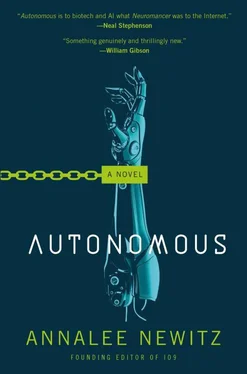


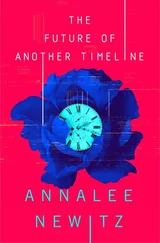
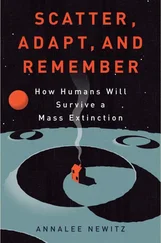


![Аннали Ньюиц - Автономность [litres]](/books/424681/annali-nyuic-avtonomnost-litres-thumb.webp)

